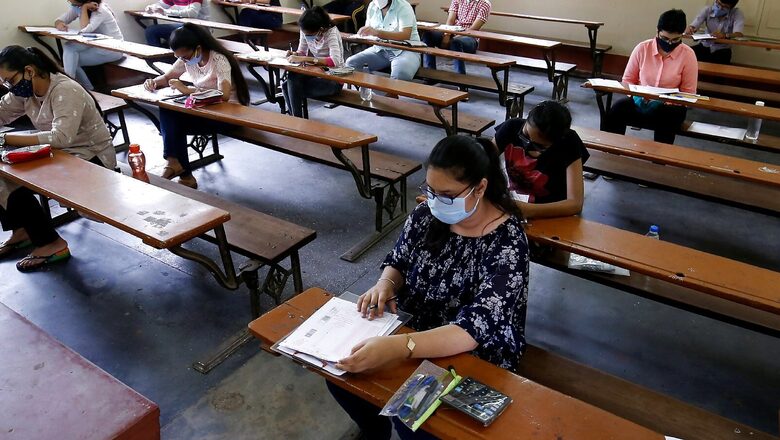
views
Agility and adaptability are among the top skills demanded by most businesses amidst the global pandemic. It has been instrumental in bringing about a transformation in businesses primarily by just creating a sense of urgency to leap towards digitization. Usage of technology in everyday tasks has increased multifold.
To adapt to the changing business requirements, education mechanism have digitized and virtual classrooms took the centrestage. Similarly, even the skill sets required by the industry have rapidly changed; demanding for a change in the curriculum and teaching methods of the higher education system.
The new normal has pushed the educational institutes to transform themselves and strive towards an education provider that is learning-centric. With the rapid adoption of digital learning, there is a need to address the gaps in the learning process of students.
To address this gap, there needs to be a mutually beneficial partnership between academic institutions and the industry to make the students employable.
With the rise of the digital era, job opportunities for specialized courses have increased. These courses when acknowledged by the institutions will enable the students to hone their skills and learn the managerial responsibilities to grow further in their careers. Academics, practical knowledge, and industry exposure molds students better. Additionally, industry experts mentoring and contributing to shape the future of the country by associating with academic institutes is a definite plus.
The second part of being industry-ready are the students, it is given that colleges and institutions offering higher education are more facilitated to provide such programs and industry exposure. Since the curriculum is leaning towards skills and employability, students have a plethora of career options.
These students prefer to work and experience the jobs they aim to do with internships and hands on experience. Few ways to develop skills can be:
Practical Application: It is no more enough to gain theoretical knowledge and have certificates that mention your participation. Industry experts pay close attention to how those learning benefitted the student and how it can be applied to the job.
Innovative Thinking: Having an innovative and attentive mind can help you gain a very different perception of things which can help in problem solving in day-to-day life. Innovative thinking and attitude to think beyond the obvious is an important skill to showcase during interviews.
Create Your Portfolio: As an employee, it is imperative to know how to showcase your work. Building your own portfolio can assist you on showcasing your projects, assignments and your way of functioning.
Networking: Being in touch and connected with the industry personnel can definitely give you an advantage of being heard. Networking also portrays you as a person of content as your idea and knowledge has gained attention of people to initiate a conversation.
Assisting students to be industry-ready is merely halfway through towards bridging the gap. It is very important for the students to be well-versed with the dynamic environment of the industry. They should be aware of the industry trends, technological developments, ancillary industry that are making their way and the various roles these changes bring.
The digital era has paced the job market by at least five years into the future in a very short span of time.
It is important for students pursuing higher education to develop non-technical skills as well, that can be accessed digitally, as these might play a crucial role in hiring. Especially since the industry is looking for skills that make the employee hit the ground running on hire.
Students are expected develop their competencies and skills through any medium necessary- internships, online courses, networking with professionals globally. More importantly, the institutions must be responsible towards developing programs that make the students industry-ready.
As an academic institution, alma mater can prove to be an asset in terms of providing opportunities for industry and the student cohort to interact. This will also ensure that the student is aware of the current industry problems and expectations. This can be done through regular industry backed lectures, visits to organizations, opportunities for internships etc.
In conclusion, theories and case studies can only help knowledge transfer to a limited extent. For a long term sustainable career growth, it is extremely crucial for the student to meet industry expectations, and continuously develop skills that are future-ready.
Dr Minu Madlani is Principal at KPB Hinduja College. The views expressed in this article are those of the author and do not represent the stand of this publication.
Read all the Latest Opinions here




















Comments
0 comment